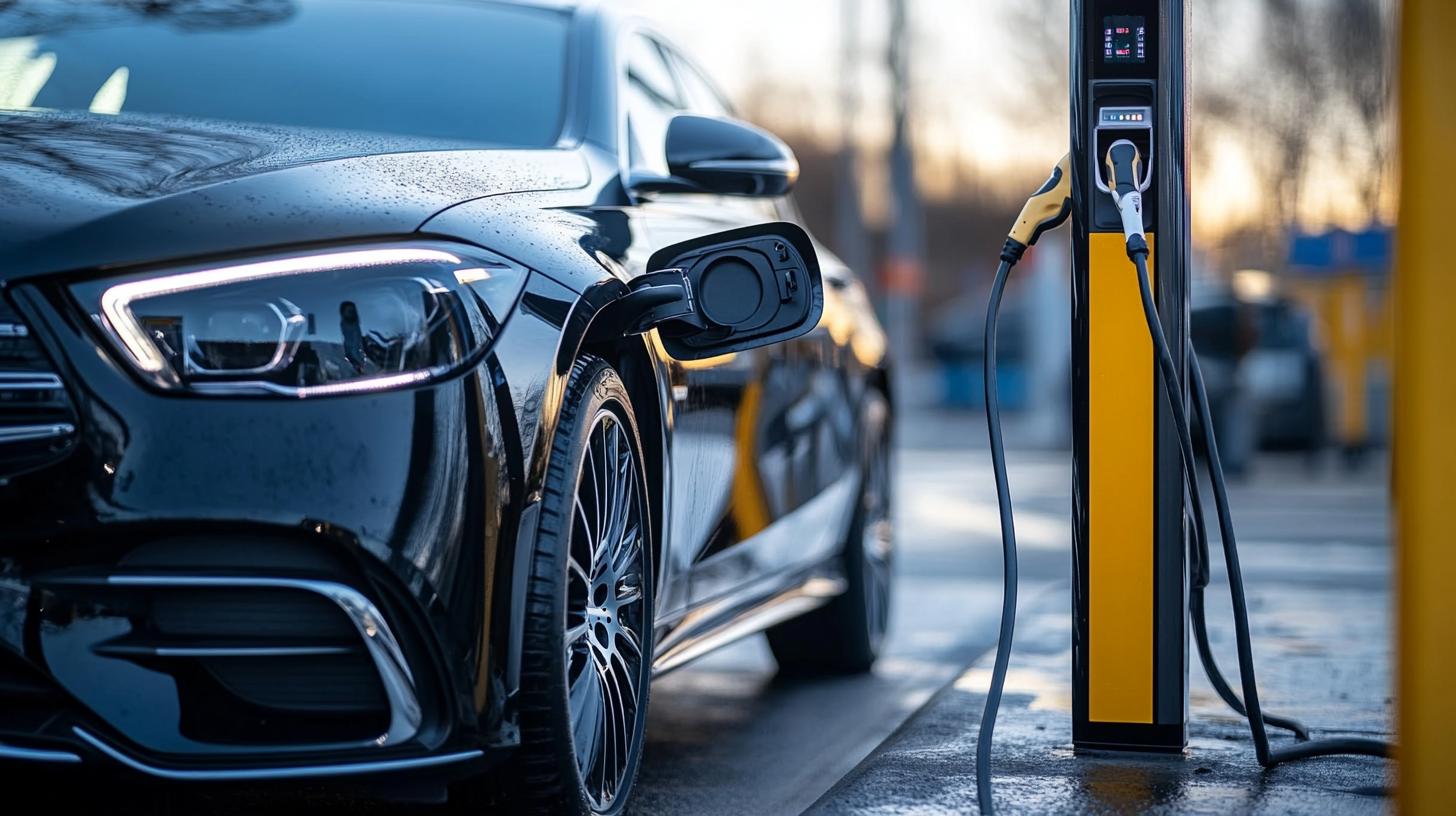Mercedes-Benz, globally renowned for its luxury vehicles, has decided to halt development of hydrogen fuel-cell cars. The company’s past achievements in hydrogen technology include the GLC F-Cell, a hybrid vehicle that combined electric battery power with a hydrogen fuel cell, aimed at promoting zero emissions.
The GLC F-Cell: A Pioneering Endeavor
Introduced in the early 2010s, the GLC F-Cell blended battery-electric and hydrogen fuel-cell technologies. This innovative vehicle attracted attention for being among the first luxury cars to integrate hydrogen power, symbolizing Mercedes-Benz’s commitment to reducing environmental impact.
The Decline of Hydrogen-Powered Vehicles at Mercedes
The discontinuation of Mercedes’ hydrogen-powered initiative largely stemmed from the high costs associated with hydrogen vehicle production. Only a limited number of GLC F-Cells were manufactured, primarily for promotional purposes rather than public sale. Additionally, the lack of a widespread hydrogen fueling infrastructure posed a significant challenge.
Hydrogen vehicles struggled to gain traction compared to their electric counterparts, which benefit from established and growing charging networks. Consumers found the GLC F-Cell less practical due to this infrastructural gap.
The Future of Hydrogen in the Auto Industry
While Mercedes-Benz shifts focus away from hydrogen cars, the company continues to see potential in hydrogen for other sectors. Collaborations, such as with Volvo Trucks, aim to advance fuel-cell systems for heavy-duty vehicles, where the challenges of battery weight and range are more pronounced.
Although Mercedes-Benz has moved away from hydrogen for passenger cars, the exploration of hydrogen as an alternative clean energy source continues across the transportation sector. The eventual goal is finding a sustainable path that addresses environmental concerns effectively.
The Impact of Mercedes-Benz’s Shift Away from Hydrogen Fuel-Cell Cars
The decision by Mercedes-Benz to cease the development of hydrogen fuel-cell vehicles marks a significant shift in the automotive industry, affecting not only individual consumers but also communities and countries invested in alternative energy solutions. This move highlights the ongoing debate between hydrogen fuel technology and electric battery power, shaping the future of sustainable transportation.
Implications for Consumers and Communities
For consumers, Mercedes-Benz’s withdrawal from hydrogen fuel-cell cars is a telling indicator of the current market dynamics. Potential buyers of hydrogen vehicles may now reconsider their options in favor of more readily available electric vehicles (EVs), which are supported by a growing and robust charging infrastructure. This transition could accelerate the adoption of EVs, prompting communities to invest more in electric charging stations and related infrastructure, further increasing accessibility for electric vehicle owners.
In communities where hydrogen fuel projects have been launched, there is a mixed impact. For instance, local economies that have invested in hydrogen production and infrastructure may face challenges in adapting to reduced demand. However, they could explore new partnerships to pivot towards other hydrogen applications, ensuring economic resilience.
National and Global Energy Strategies
At a national level, the shift by a major automaker like Mercedes-Benz can influence energy policies and industrial strategies. Countries aspiring to be leaders in hydrogen technology may need to reassess their investment focus, balancing between hydrogen’s potential in various sectors beyond automobiles and the current momentum in electric vehicle adoption.
Globally, the decision contributes to the broader conversation about the most viable and efficient path to achieving a sustainable future. While some governments, especially in regions with abundant renewable resources, continue to advocate for hydrogen as a critical element of their energy strategy, the focus may need to diversify to include a range of strategies and emerging technologies.
Controversies and Industry Perspectives
The debate over hydrogen versus electric battery technology is not without controversy. Critics of hydrogen technology often point to the inefficiencies in hydrogen production and distribution, as well as the environmental impact of hydrogen extraction methods. Advocates, however, emphasize hydrogen’s potential for long-range driving and its suitability for heavy-duty vehicles and industrial applications where electrification is challenging.
Mercedes-Benz’s pursuit of hydrogen solutions for heavy-duty vehicles, in collaboration with companies like Volvo, reflects an evolving industry perspective. There is an acknowledgment that hydrogen may still play a vital role in specific niches of the transportation sector, despite the dominance of battery-electric vehicles in the consumer market.
Ultimately, the future of hydrogen in the automotive industry remains a subject of innovation and exploration. As automakers, governments, and industry leaders continue to navigate these choices, the focus remains on finding environmentally sustainable solutions that effectively meet the challenges of modern transportation needs.
For more on the automotive industry’s shift to electric vehicles and sustainable energy solutions, visit the official Daimler website.


